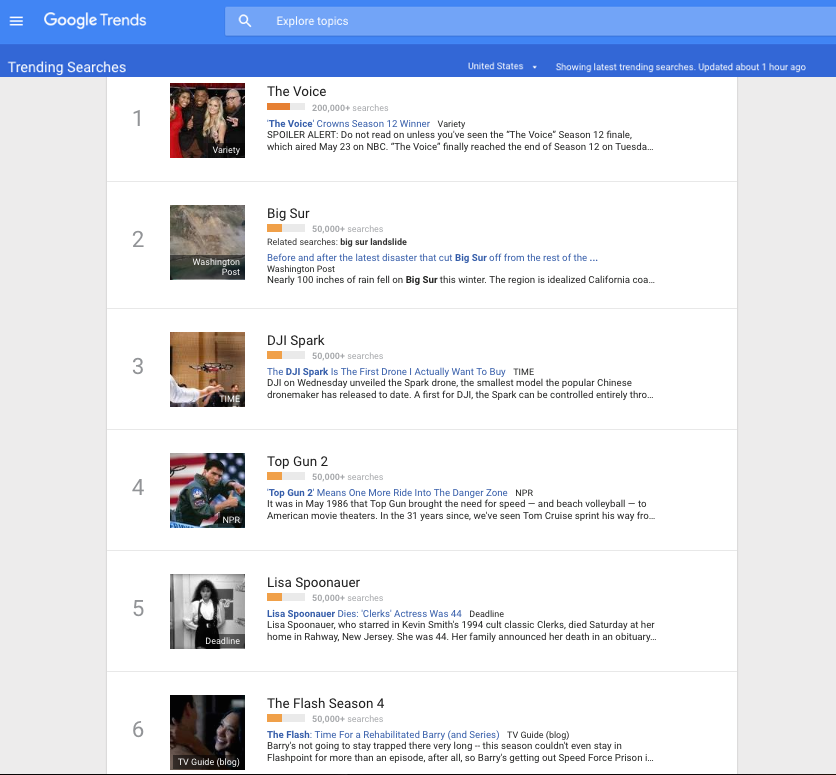How many of you actively think about your competition? Do you spend a lot of time looking at what they’re doing online? Or do you hardly ever think about them?
I’m going to discuss how often you should be focusing on your competition from a marketing perspective. When you’re starting up a company, you have to keep one thing in mind: the market is usually huge. If it’s not, you’re probably picking a niche you shouldn’t have entered in the first place.
All Markets Are Oceans
There’s Coca-Cola and Pepsi. There’s Uber and Lyft. There’s Airbnb and HomeAway, Priceline and Expedia, Delta and American, Emirates and United. The list goes on and on. Then, of course, there are a ton of smaller brands.
The point I’m trying to make is there’s more than enough room for one player in this space. Sure, it would be great to be number one, but you know what? You can’t always be number one. And if you’re making enough money as number two or number three or even number twenty, that’s better than making nothing.
When I’m just starting off, I do look at my competition, but not on a daily basis. I just keep track of them on a monthly basis to see what they’re doing. And if I see them all over the place, I may react. But it’s very rare. I usually stick with my strategy when things are going well, regardless of what the competition is doing.
Monitoring your competition all the time is counterproductive. You're trying to build your business. Share on XYou’re trying to build your own business, and at the end of the day that’s what you need to focus on. Focus on adding value to your audience.
Learn More: 7 Tips to Creating Killer Blog Posts that No One Else Is Writing
Competitive Research Tools
If you do want to spy on your competition, your go-to tool should be SEMrush. It’s totally free up to 10 inquiries per day, and it allows you to look at tons of different metrics for your competitors’ top pages. You can see what keywords they are ranking for and what they’re doing that’s related to their domain. You can even see what ads they’re running.

Maybe one of your competitors is doing resource pages that are super epic and they spend a lot of money on it. You wouldn’t know unless you actually took a peek at what’s going on.
If you want to get a little more complex, you can probably use a tool like Adbeat. Adbeat is more granular, and can show you not just what ads your competition is running, but how much they’re spending across the web. You can find out what types of media they’re running on which channels, and you can also look at categories.

Related Content:
- 10 Ways to Generate Topics and Write High-Ranking Blog Posts
- How to Conduct Smart Competitor Research for Better Customer Acquisition
Pay Attention to Market Shifts
The biggest mistake I’ve made is not paying attention to product or market shifts caused by my competitors. This has cost me in the long run. For example, if you see a new wave or a new trend (let’s say mobile) and your competitors are pushing their product into the new space but you’re not—you’re going to lose the first mover advantage.
Keep on top of trending searches and top charts on Google Trends.

By the time you realize what’s happened and you want to get in on the action, you’ll only get a really small portion of that pie. So when you start seeing market shifts and trends, make sure you’re jumping on them as soon as, if not sooner, than your competitors. Don’t get left behind.
In general, don’t pay attention to the small things, like specific viral blog posts. Sure, you could dig into it and look at what your competition is doing that’s caused their content marketing to perform better than yours. But in the long run that’s a smaller consideration—you need to be paying attention to major trends. What does your competitors’ roadmap look like? Where are they going over the next five years? Are they targeting your same demographic?
Learn More: How to Steal Brilliant Ideas (Rather Than Reinvent the Wheel)
Don’t Follow the Competition—Talk to Your Customers
Now, to play devil’s advocate, when you see your competition embracing a major internal shift, don’t assume that you should be doing the same thing. Their strategy may be misguided.
Talk to your customers. Let them know, “Hey, this is what we’re thinking of doing to our products and services. What do you guys think about this? What would you like us to do that we’re not doing?”
If you're regularly talking to your customers, you won't have to worry about your competition. Share on XBut if you’re not talking with your customers or adapting, you’ll start to see your competitors doing all this crazy stuff and you could be missing the boat.
I made this mistake fairly recently. I thought we were about to lock in a new client, but they wound up turning around and signing with a competitor. The feedback I got was really helpful—they were looking for a proposal that was more detailed.
My point is that when I found out we had lost to a competitor, that prompted me to take a look at what we had going on to see if we could have made any adjustments. It was an opportunity for me to reevaluate and see what we could have done better. Hopefully, this is something we will continue to adjust in the future.
Here’s the thing—when you think about your competitors and just keep monitoring them, you’re playing a game of catch-up. You’ll never be the first mover. Think about it—while you’re monitoring what they’re doing, they’re focusing on their customers and making moves.
But if you start thinking in advance and making changes to your business ahead of time, you’re much more likely to beat the competition than if you’re just analyzing your competitors each and every day.
Matching the competition's backlinks and writing the same articles as them is not the right mindset. Share on XThe right mindset is: “Where is the market going? How can we satisfy our customers better? And how can we make them so happy in the long run that they’ll never leave?”
This post was adapted from Marketing School, a 10-minute daily podcast in which Neil Patel and Eric Siu teach you real-life marketing strategies and tactics from their own experience to help you find success in any marketing capacity. Listen to the podcast version of this post below:



